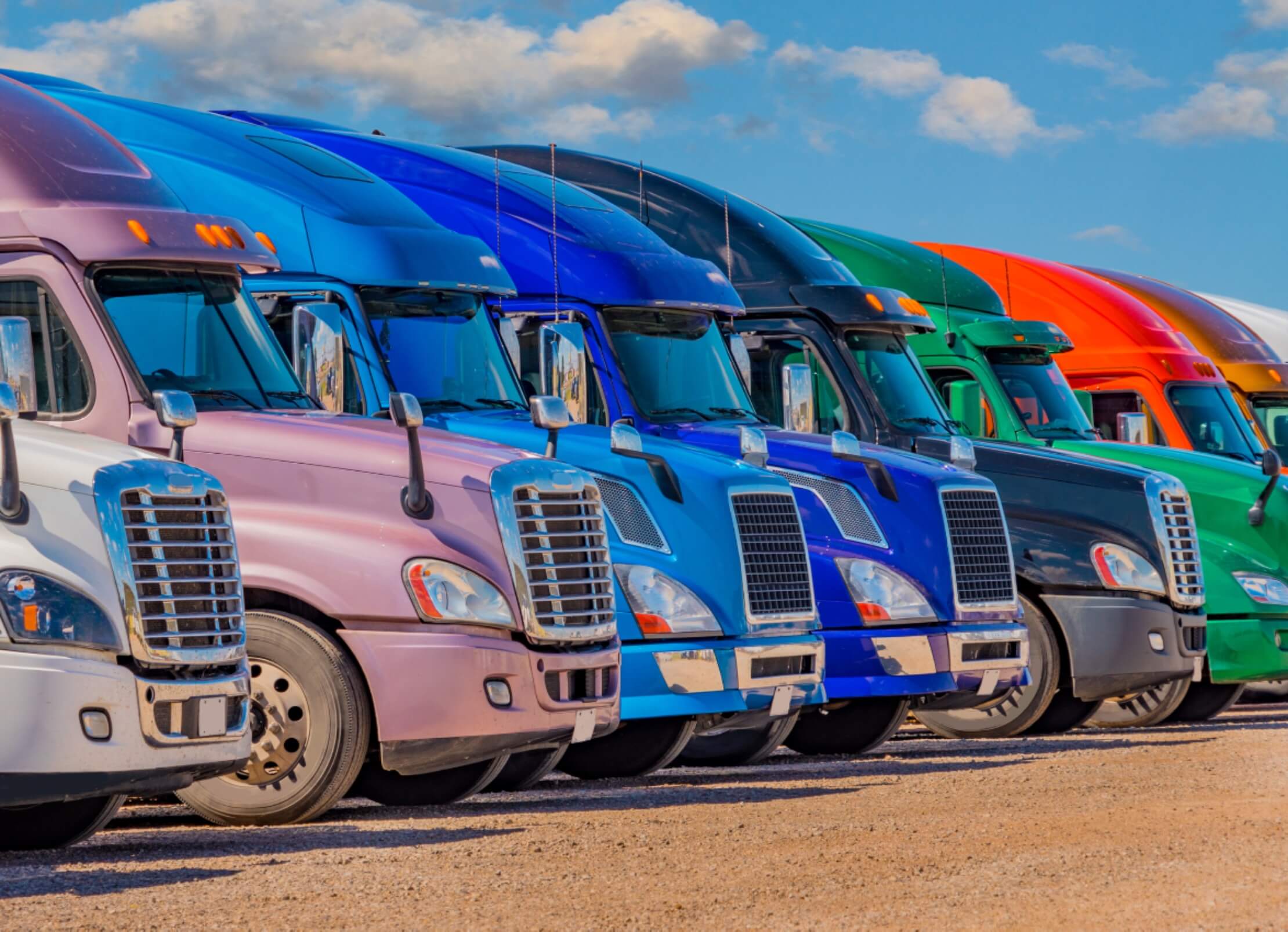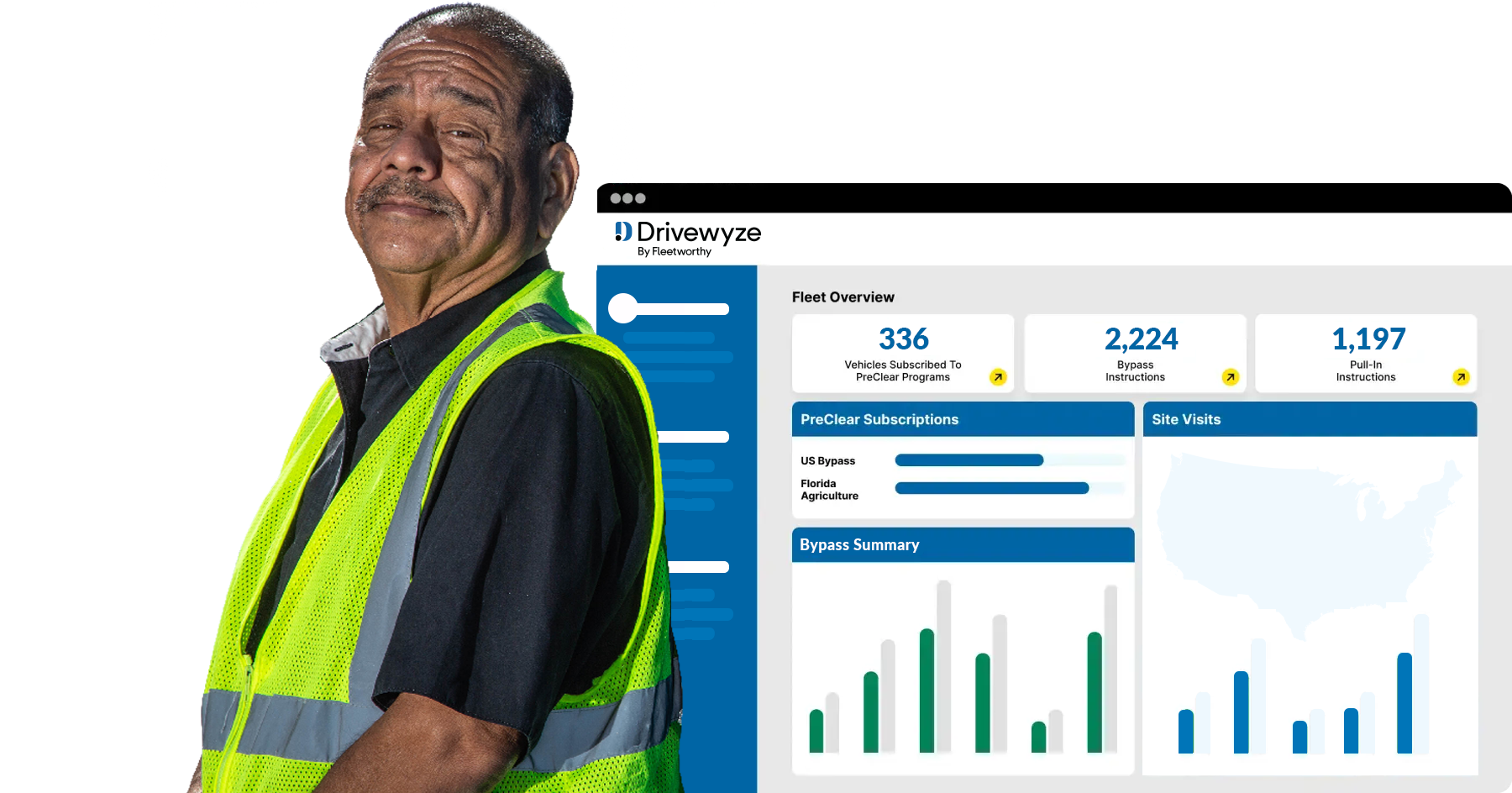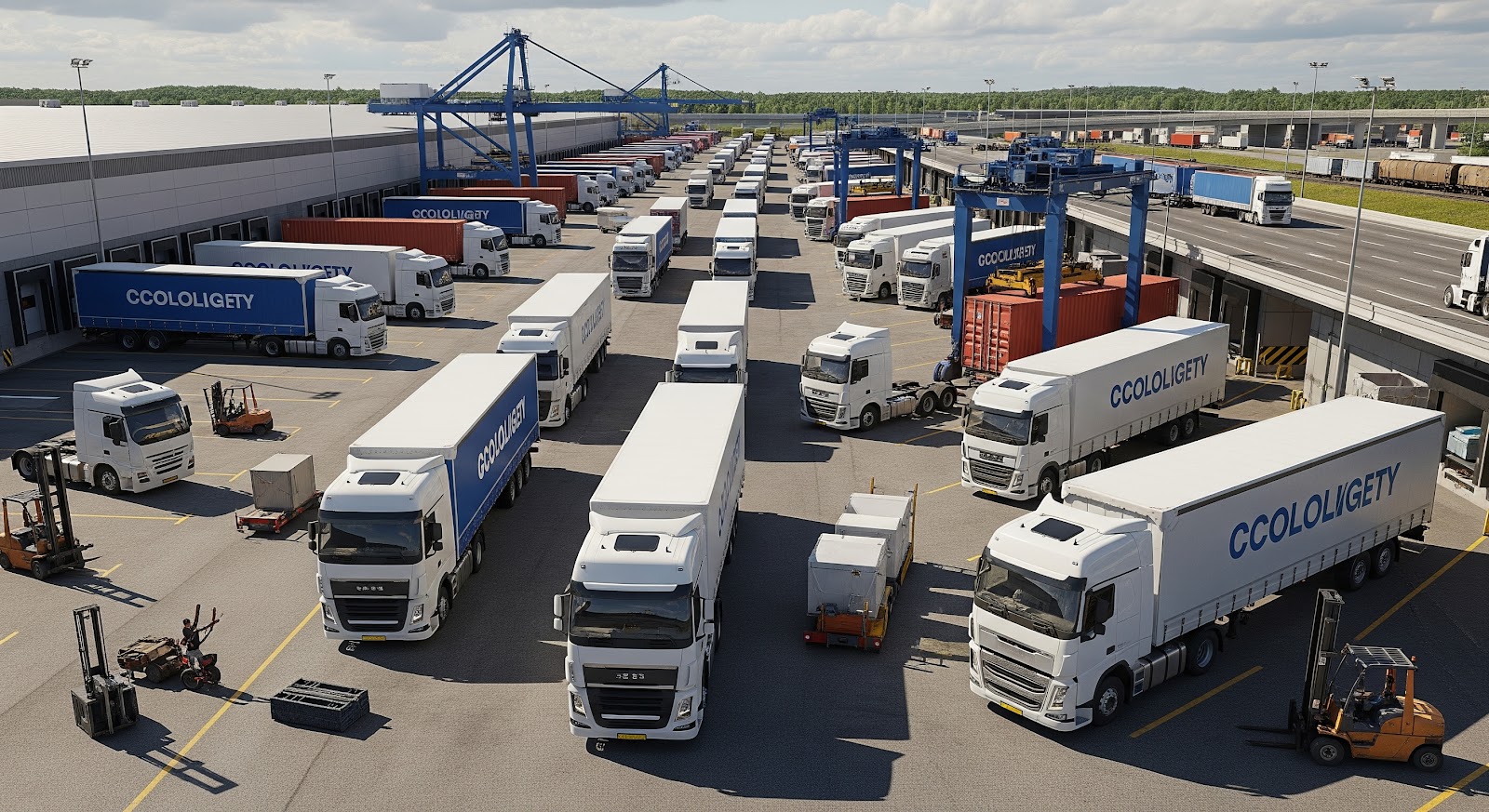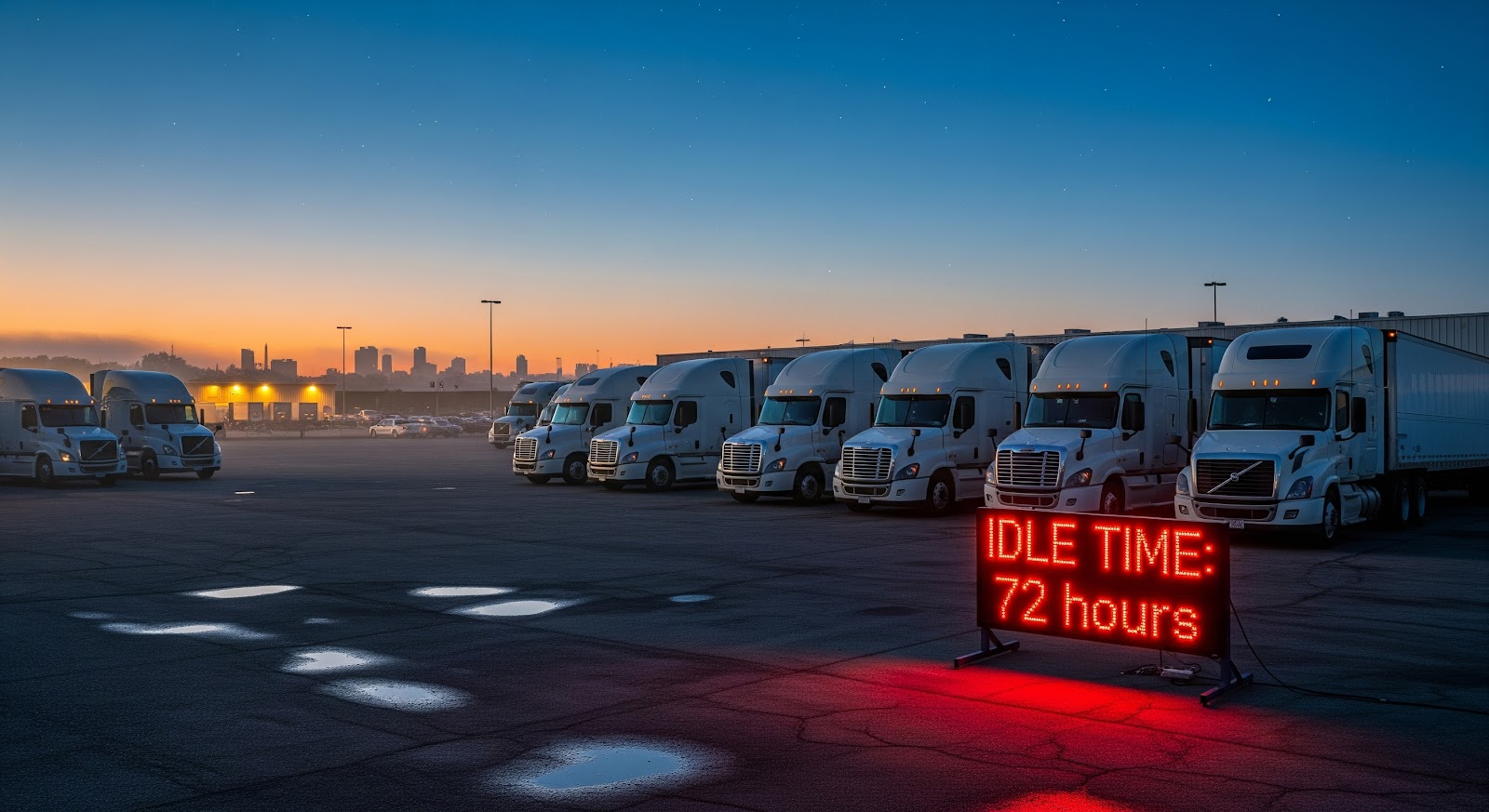While many industries are currently facing a downturn, that’s not the case in trucking. After all, trucks transport more than 70% of all goods in the U.S. Perhaps, that (among other reasons) is why more and more drivers are becoming owner-operators.
Right now, approximately 10-15% of truckers are owner-operators, but that number is expected to grow significantly in the next few years. With that in mind, if you’re interested in learning how to become an owner-operator, you’re in the right place.
We’ll explore and discuss everything you need to know about owning and operating a semi truck.
What is an Owner-Operator?
Simply put, an owner-operator is a truck driver who’s self-employed and operates their own trucking business. The biggest difference between these drivers and those who work for larger companies is they actually own the truck(s) they drive.
That said, becoming an owner-operator is no walk in the park. It’ll take time, persistence, and capital to cover expenses. Here’s what you need to know.
Owner-Operator Responsibilities
If you’re an owner-operator, you’re a business owner. That means you’ll have to handle a huge swath of responsibilities like sales, invoicing, taxes, insurance, training, truck upkeep, and more.
Owner-Operator vs. Own Trucking Authority
While the difference between the two is a common question, these are not comparable terms. Having your own authority means the Federal Motor Carrier Safety Administration (FMCSA) has issued you a Motor Carrier (MC) number and a USDOT number. With those, you are allowed to operate independently as your own trucking company. Receiving your own authority is a step to becoming an owner-operator, meaning all owner-operators have their own authority.
Owner-Operator vs. Independent Contractor
The main differences between owner-operators and independent contractors are truck ownership and operating authority. Owner-operators own their own trucks and have their own authority, meaning they can legally deliver freight throughout the U.S. without a contract through a carrier. Independent contractors typically lease their lease truck from a carrier and can only operate a truck under the authority provided by the carrier they are contracted with.
Owner-Operator vs. Carrier
A freight carrier (i.e., shipping company) is usually a larger company that has many drivers working for them. In rare cases, carriers also lease trucks to independent contractors. Further, in many cases, shipping companies are open to partnering with owner-operators.
Pros and Cons of Being an Owner-Operator Truck Driver
Just like any other profession, being an owner-operator comes with its own set of advantages and disadvantages.
Pros:
- Freedom of being your own boss
- Higher earning potential
- Opportunity to build a business
However, you should also be aware of the potential challenges to owning and operating your own truck.
Cons:
- More financial volatility
- High costs (both start-up and overhead)
- Increased responsibilities
Steps to Becoming an Owner-Operator
One thing is for sure, becoming an owner-operator isn’t an overnight process. It can take years. However, once you reach your goal, it will have been well worth the effort. Listed below are some of the most common steps you’ll have to take in order to become a successful owner-operator in the trucking industry. They include:
- Get your Commercial Driver’s License (CDL)
- Get as much experience as you can while driving for another company
- Create your vision and business plan
- Decide on your business structure then incorporate
- Obtain the necessary state/national permits and licenses
- Sign up for commercial truck insurance
- Purchase your own truck
- Start making sales calls and building connections
- Keep yourself updated about the latest industry trends
Everyone’s situation is slightly different, so your path to becoming an owner-operator could be easier or more challenging than others. The most important thing is to stick to it (from CDL training to sole proprietorship), and don’t stop until you reach the finish line.
How Much Do Owner-Operators Make After Expenses?
According to Zippia, most owner-operators earn between $100,000 and $220,000 per year. However, that does not take into account the operating expenses (fuel, maintenance, insurance, etc.). After expenses, an owner-operator’s annual net income is typically between $45,000 and $80,000.
Owner-Operator Laws & Requirements
Once you become an owner-operator you’ll no longer have a compliance department to rely on, you’ll have to do it yourself. That said, as an owner you’ll have to comply with all state and federal laws. For example, you’ll need to get your USDOT and MC number. Further, you must meet all U.S. Department of Transportation (DOT) requirements for owner-operators. That’s in addition to CDL training and endorsement requirements.
Some of the most important laws for truckers include:
- Part 395 of the Federal Code of Regulation: Keep track of the number of hours driven and stay under the maximum allowable hours (i.e., 11 hours driving limit per day, no more than 70 hours of driving within an eight-day period, etc.)
- IFTA Requirements: All owner-operators must file an International Fuel Tax Agreement (IFTA) and International Registration Plan (IRP), when necessary.
- Daily Driver Vehicle Inspection Report (DVIR): Section 392.7 of the Federal Code of Regulation states that drivers must inspect certain areas of their trucks before and after every working day.
Further, owner-operators and trucking companies must meet requirements from the FHWA, FMCSA, and FAA (when applicable), as well as meet all EPA standards.
FAQs About Becoming an Owner-Operator
How does an owner-operator find loads?
There are multiple ways to find loads to haul as part of your new business as an owner-operator. You can use freight brokers, create relationships with commercial truck companies, use load boards, etc.
How does fuel surcharge work for owner-operators?
A fuel surcharge is basically an additional fee added to your “freight rate” that can help to offset fuel costs. In most cases, owner-operators with their own business negotiate this rate. However, the price can fluctuate depending on the cost of fuel, so new owner-operators should keep this in mind.
Do owner-operators get random drug tests?
Absolutely. Owner-operators are subject to random drug tests, which are a part of the drug and alcohol safety program that’s run by the Federal Motor Carrier Safety Administration. Further, you’re required to join a drug and alcohol consortium that can manage the random testing process.
How do owner-operators get paid?
Unlike a company driver, independent owner-operators typically work on a per-load basis. They can negotiate their rate by the mile or by the trip — both options have pros and cons that should be considered.
Learn More About Solutions from Drivewyze
Becoming an owner-operator can be a tedious process, but Drivewyze is here to provide you with resources to get started and solutions for efficiency once you get on the road. Our solutions like PreClear, Safety+, and e-Inspection help your business run more smoothly and keep you safe. Learn more about Drivewyze solutions for owner-operators today.

Ready to Get Started?
Learn how North America’s leading carriers use Drivewyze to save money and improve safety.





